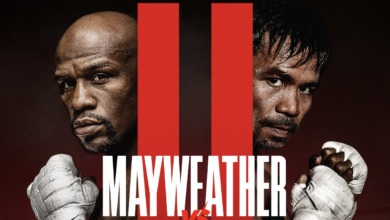Global Uncertainty and New Investment Rules
It’s no secret that the world’s economic landscape is looking shakier by the day. From central banks’ whiplash-inducing policy pivots to geopolitical powder kegs, investors are being forced to rethink everything they thought they knew about risk, reward, and where to park their capital. The old playbook is out the window. What is really driving the new one?
Uncertainty Remains Constant
Markets have always hated uncertainty, but lately, it’s become the only thing they can count on. The so-called “everything bubble” is wobbling as inflation proves stickier than central bankers would like to admit, and rate hikes are squeezing both consumers and corporations. Meanwhile, supply chains remain tangled, and political tensions from Eastern Europe to the South China Sea keep the world on edge. Investors are left wondering if there is any safe harbor left.
Traditional safe assets like government bonds aren’t the no-brainer they once were. With real yields still negative in many places and sovereign debt levels ballooning, even the most risk-averse are being forced to look elsewhere. Gold bugs feel vindicated, but even precious metals are subject to the whims of manipulated markets and central bank interventions. Equities, once the darling of easy-money policies, now look vulnerable to both stagflation and the threat of recession. In this environment, diversification is more than a buzzword; it is a survival strategy.
Consumer Behavior and Digital Disruption
With the ground shifting beneath their feet, investors aren’t the only ones rethinking their strategies. Consumers, too, are making different choices about where to spend their increasingly precious discretionary income. The rise of digital platforms has opened up a world of alternatives, from streaming services to e-commerce and beyond. In Australia, for example, the proliferation of online entertainment options has been notable, with platforms like online casinos australia gaining traction as part of a broader shift toward digital-first leisure spending. This trend isn’t just about convenience; it is about consumers seeking value, novelty, and sometimes even a sense of community in uncertain times.
For investors, this means the lines between sectors are blurring. Tech is no longer just about hardware or software; it is about how people live, work, and play. The companies that can adapt to these changing behaviors—offering flexibility, security, and engagement—are the ones most likely to weather the next storm. But with digital innovation comes regulatory scrutiny, especially in markets where governments are eager to assert control over new forms of commerce and communication. Navigating these waters requires not just capital, but a keen understanding of both local and global currents.
Anonymity and Free Speech in the Media
It’s not just money that’s moving in new directions—so is information. In an era where trust in mainstream institutions is at an all-time low, alternative media platforms have flourished by offering unfiltered, often contrarian perspectives. Anonymity has become a powerful tool for those seeking to challenge the status quo, allowing voices that might otherwise be silenced to reach wide audiences. ZeroHedge’s unique approach to anonymity, with articles posted under the pseudonym “Tyler Durden,” has helped shape its distinct voice and influence, making ZeroHedge’s anonymous authorship a key factor in its widespread readership and controversial editorial tone.
But this freedom comes at a cost. Regulatory regimes, especially in places like Australia, are tightening the screws on digital speech and platform access. The same rules that govern financial flows are increasingly being applied to information flows, with governments citing everything from national security to public health as justification. For both investors and media consumers, the message is clear: the battle over who controls the narrative is far from over, and the outcome will shape not just markets, but society itself.
Conclusion
The world isn’t getting any simpler. Economic uncertainty, digital disruption, and the fight for free speech are converging in ways that challenge old assumptions and demand new strategies. Whether you’re managing a portfolio, running a business, or just trying to make sense of the headlines, the only real constant is change. Those who adapt—by diversifying their assets, embracing innovation, and questioning the official story—will be best positioned to navigate whatever comes next. The rest may find themselves left behind, wondering when the rules changed and why nobody told them.



